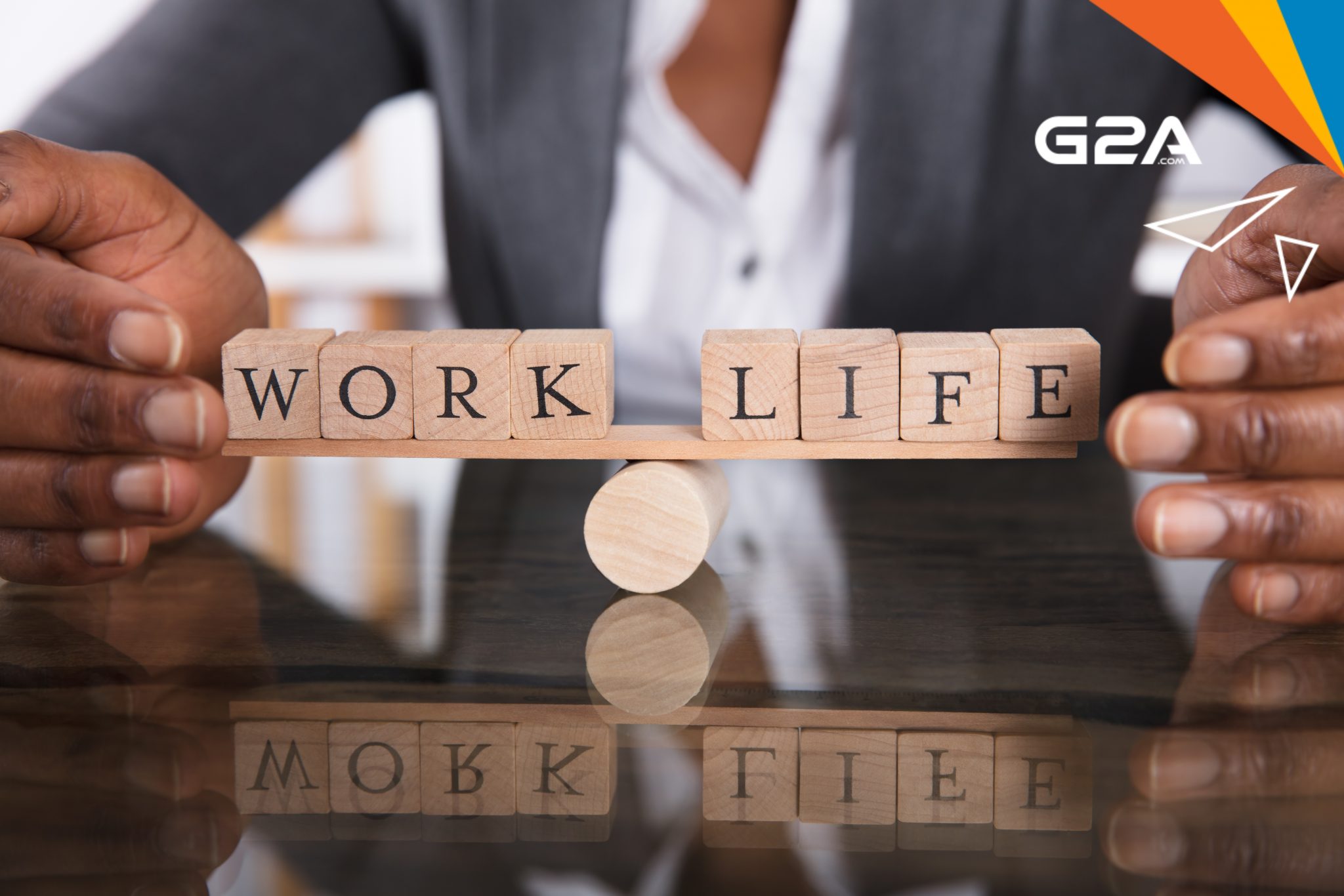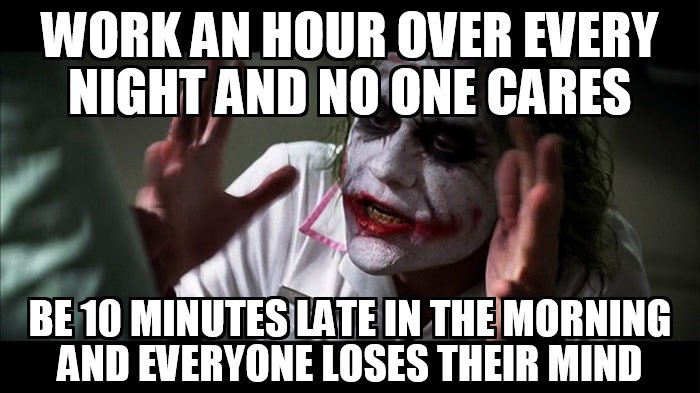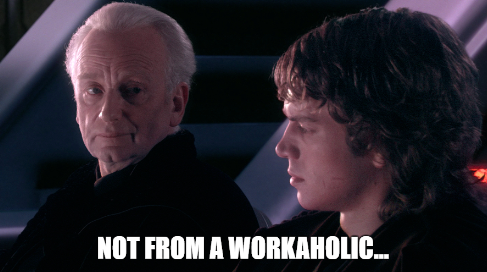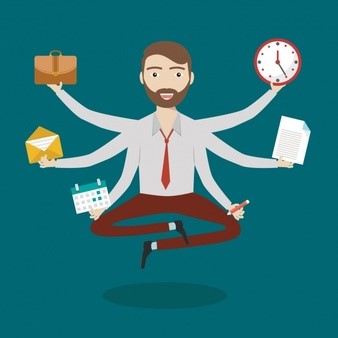Work-life balance_#G2A Work Hack


Let me put it this way:
- The day has twenty-four hours.
- We need to sleep for around six to ten of those hours, though the ideal is eight hours of sleep every day.
- So, if our shifts are eight hours long, that gives us around eight hours for ourselves… including preparing for work, preparing and eating meals, and more importantly, commuting to work.
So, if we consider that our shifts take an entire third of our day, which is only compensated with weekends and vacation, how can we solve this problem?
Well, the trick is… don’t. Don’t balance your life with your work. Streamline it.


Now, before we proceed, a word of appreciation to the workaholics.
Please slow down. You’re worrying us. Your health is important to you but also to us. We understand you think it’s worth it, but don’t overdo it.
With that out of the way, streamlining is all about understanding that your job is as much a part of your life as your sleeping cycle, or your break for meals, or the lazy Saturday afternoon looking at the sun setting in the horizon. This may resonate even harder for all those who have their own businesses.
This means that you need to integrate your job into your life, and in a way, make it into who you are.
I prefer to talk from personal experience, so let me delve into it. While I personally abhor categorization, let me lay it out this way:
- I like to play games.
- I like to write.
- My profession is copy writing.
- I love to read bizarre facts and articles.
- I love spending time with my significant other.
- Do I categorize myself, and say “Oh, I’m a gamer, haha, and a writer, and a copywriter”?
No.
Ok, maybe sometimes.
But that’s incredibly cringy for me, so I try to keep it down and not define myself as such.
Instead, I conglomerate all the categories together. I sleep during the night, a little after dark, and awaken during the wee hours of the morning. I ritualistically brew my coffee and take care of myself. I let my brain realize what is to come.
I work for the first eight hours of my day. During these hours, I focus on writing, reviewing, and research on new topics or refine what I already know. I also drink a lot of coffee because I have a crippling addiction to caffeine.
Afterwards, during the day, I try and weave my interests. I spend time with my partner, get meals with her, but also wonder where I’ll fit that one (or four) hours of gaming, connecting with friends, and maybe getting into a group chat. Maybe I’ll have other plans too, such as grocery shopping, or a doctor’s visit.
I don’t go out though. I don’t like people that much.
And that’s how I balance my work with my life.
You need to understand that you’re not what you do for a living, nor are you your hobbies. You’re you. Your hobbies and profession are just components of you.

How to achieve work-life streamlining
Plan ahead
Be reliable. Know ahead of time what will be needed of you throughout the day and make/keep contingency plans on your sleeve. We can’t predict what the future will bring but we can prepare ourselves. You won’t always need an umbrella on a cloudy day, but it sure doesn’t hurt to bring it along.
Double checks
Just use your worktime to work properly. I don’t know how to say this any more clearly. If you make sure you’ve done what you needed to do, you won’t have to go back to work at a later instance, and if you planned properly, you won’t have to stay longer to take care of that project.
Trust your team
This part is CRUCIAL for the rest of the plan. Without trust and support, your team will likely not have the tools needed to resolve issues in your absence, specifically during vacations, but also in case you’re not the go-to emergency contact for the day. Moreover, trusting your team will afford you the peace of mind of not having to help them in your off time.
Practice meditation
Now, I’m not saying you should meditate for the sake of meditation, but rather, meditation teaches you how to let thoughts go, so that you don’t fixate on what awaits you in the office. I think it’s safe to say there’s nothing quite like being on holiday and thinking back to the documents waiting for your approval on top of your desk. Seriously, for the sake of your own health, practice not caring occasionally. Plus, if your team is trustworthy, you can rest assured that they’ll call you if they really need you.
Now, let’s get back to work!